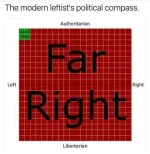- Joined
- Jan 25, 2010
- Messages
- 35,663
- Reaction score
- 19,285
- Gender
- Undisclosed
- Political Leaning
- Undisclosed
In what manner of events do you think this growing chasm will "come to a head"?
I know the US is very different than Thailand but the political divide it currently has is similar to that Thailand had/has in 2006-2008
The rural majority elected someone who the urban middle class, military and royalists did not like.
https://en.wikipedia.org/wiki/Politics_of_Thailand#2001–2006,_Thaksin_Shinawatra
Red shirts, yellow shirts
The so-called "Red Shirts" got their start as supporters of deposed former Prime Minister Thaksin Shinawatra. Red shirts transferred their support to Thailand's ruling Pheu Thai party led by his sister, Yingluck Shinawatra. In general, red shirts see attempts by the urban and military elite to control Thai politics as a threat to democracy.[7] The "yellow shirts" represent those opposed to Thaksin. They were the force behind the street protests that led to the 2006 coup. The yellow shirts are a loose grouping of royalists, ultra-nationalists, and the urban middle class opposed to Thaksin and overarching democratic rule by a rural majority.[8]
2008 political crisis
In 2008, Thailand saw increasing political turmoil, with the PPP government facing pressure to step down amid mounting civil disobedience and unrest led by PAD. The conflict centred on the constitution. The PPP supported the amendment of the 2007 constitution, while anti-government protesters considered it to be a political amnesty for Thaksin and his followers.
The anti-government protesters were, said, mostly better educated, more affluent, urban Thais criticizing a Western-style electoral system corrupted by rich politicians. Thaksin was accused of buying votes, bureaucrats, policemen, military officers, and even political factions. Thaksin became the example of the businessman autocrat, launching so-called populist projects, some of which were controversial, such as the war on drugs. Hundreds of killings and murder cases noted by the police were said by them to be merely fighting among the drug traffickers, but no further investigation ever occurred. The judicial process was seen as useless; instead, decisive justice was seen to be in the hands of the police.
As the anti-government movement had criticized Thaksin as an example of a corrupt politician, it discredited the election system, suggesting at once a system in which part of the representatives in the national assembly would be chosen by certain professions or social groups.
Anti-Thaksin protesters were vastly outnumbered by Thaksin's supporters in the rural majority, who delivered to his party two resounding election victories. Their loyalty was rewarded by generous social and economic welfare programs. The anti-government forces were well-organized, and criticized the behind-the-scenes support of the military, the country's most influential institution, seeing Thaksin supported by anti-royalists, former revolutionaries, and ex-communists aiming at regime change.[9]


